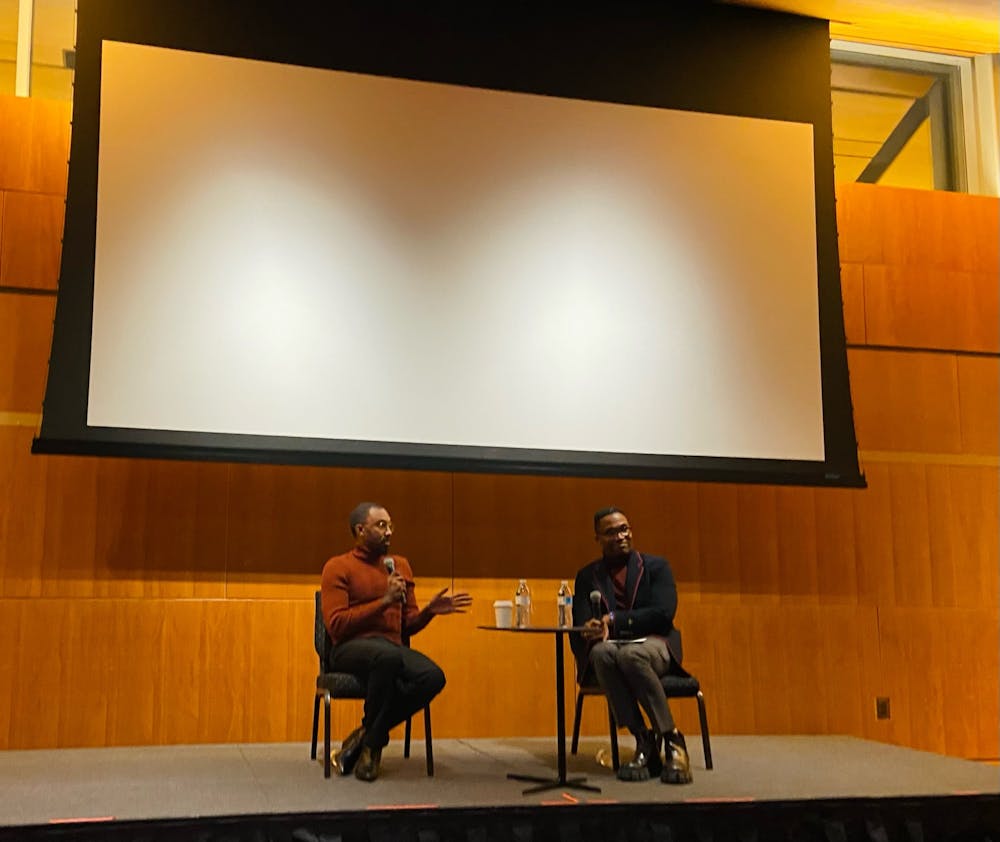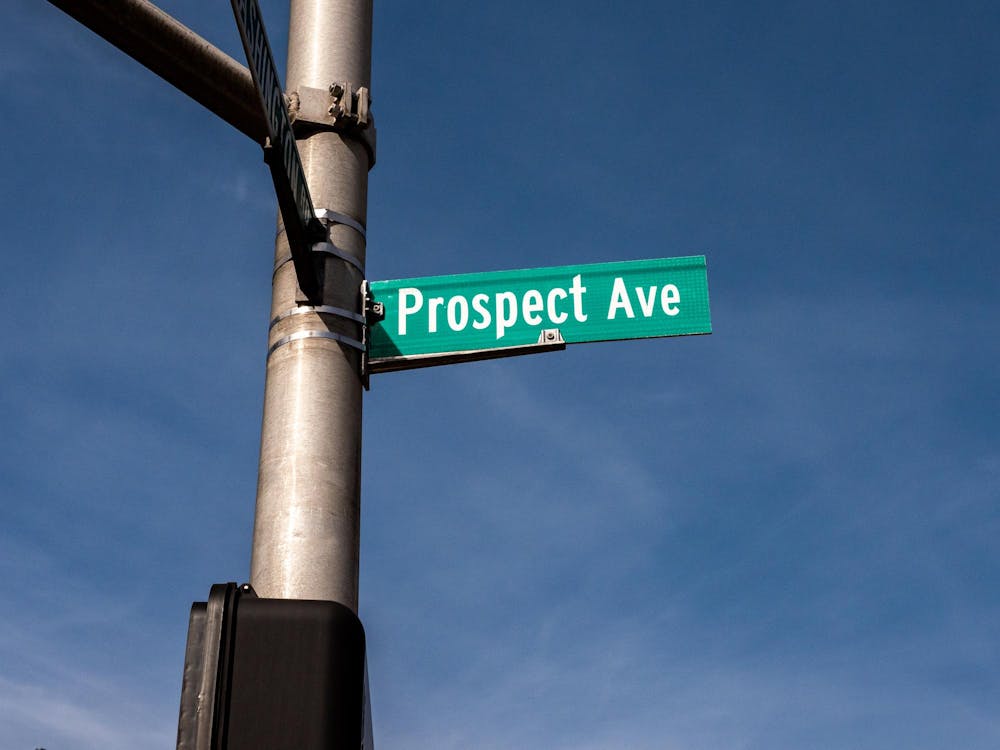Content warning: The following article contains mention of death and homophobia.
On Thursday, Dec. 1, the Princeton Gender and Sexuality Resource Center (GSRC) hosted author and activist George M. Johnson for a lecture commemorating World AIDS Day.
Johnson discussed the process of writing their book “All Boys Aren’t Blue,” a New York Times bestseller in which they recount their journey of self discovery growing up as a queer Black person in New Jersey, and talked about the banning of their book in classrooms across the United States.
Johnson said they made the decision to write the book after the death of Giovanni Melton, a teenager killed by his father. Giovanni’s foster mother said that “[Giovanni’s father] would rather have a dead son than a gay son.”
“That was the catalyst. I decided I had to do more than just keep writing these articles about my story. I had to put a body of work together that tells the full story,” Johnson said, who hoped that the book could act as a resource for young people struggling with their identity.
Johnson said that throughout the writing process they repeatedly asked themselves “Do I want to go there?” when it came to the most traumatic parts. They ultimately decided to include everything, they said.
“I kept saying to myself: ‘What’s gonna make you feel worse: if you write this thing and go through this and feel bad about it now, or if you don’t put this thing in the book and then you talk to a teenager who went through a trauma because you were too afraid to put this out there when it could have helped them?’” they said.
Johnson emphasized the love they have received from their family.

“I wanted to make sure the world got to see a family that operated differently,” they said. “If you can remove all of what society tells you a child should be and see what happens when a family just supports the child, maybe other families too will take a step back and [reflect].”
Though they faced criticism from others, Johnson said their family always appreciated them for exactly who they were.
“My family didn’t necessarily have the language for [what I was dealing with] because they didn’t know pronouns or those things, but they always operated from a place of love first,” they said.
Johnson talked about their approach to writing as well, explaining that they wanted the book to be something that could contribute to healing.

“I didn’t want people to leave the book angry,” they said. “I feel like if we’re going to create Black art and take our people to that place [of trauma], then we also have to make sure that when they leave, they feel whole, satisfied, and redeemed.”
Johnson, an activist as well as a writer, then spoke on the realities of living with HIV. When they were diagnosed in 2010, they were living in Richmond, Va. where there was only one clinic and significant stigma towards the disease.
They described moving to Washington, DC, where a well-run system existed to help those with HIV get care and support. This introduced Johnson to the possibilities of becoming an activist.
“I never wanted anybody to feel the way I had felt when I got diagnosed, not having education, not having somebody that they could latch onto publicly to understand that they too could live and thrive,” they said.
Johnson concluded the lecture by talking about the ban on “All Boys Aren’t Blue” in some parts of the country. In September 2021, they found out that a candidate for school board in Kansas was trying to ban the book within the school district. By January 2022, Johnson said the book was banned in 30 school districts across 21 states by lawmakers.
“It’s stupid,” they said, stating that students are exposed to issues on gender and identity through dozens of other mediums each day.
“‘Euphoria’ is right there,” they added. “It’s ridiculous that there was a notion that my book was introducing students to these heavy topics, but realistically, all our books were trying to do was give students a resource to navigate the actual lives they were living.”
Dusu Sidibay ’24, a student intern for the GSRC, spoke with The Daily Princetonian after the event. She said she had been interested in the lecture after hearing about it, but came with even more enthusiasm because she had just finished reading “All Boys Aren’t Blue” in one of her classes.
“It was perfect to discuss the book and then the next day actually ask the author any questions I might have,” she said.
She said the discussion on the book ban particularly resonated with her.
“In my head, if a book is banned, it’s something that happened a long time ago or in countries that are not the U.S. So to think that this is happening every day just means we have to be willing to have this conversation here,” she said.
June Scafiro, a program coordinator for the GSRC, helped organize the talk.
“For World AIDS Day, we wanted to spotlight voices that are impacted by [AIDS] and voices from intersectional, marginalized communities,” they told the ‘Prince.’ “I think George’s conversations on coming to terms with gender, not in a binary sense but talking about the different perceptions of gender, are really important.”
Scafiro also addressed the conversation around HIV/AIDS.
“It’s still something that goes on today, and it’s important, regardless of how you identify, to get tested and work towards destigmatizing HIV/AIDS,” they said.
The lecture took place at 7 p.m. in the Carl A. Fields Center for Equality and Cultural Understanding and was moderated by the Vice Dean for Diversity and Inclusion Dr. Frederick Wherry GS ’04 who is also a professor of sociology at Princeton.
Michelle Miao is a news and newsletter contributor for the ‘Prince.’ Please direct any correction requests to corrections[at]dailyprincetonian.com.








